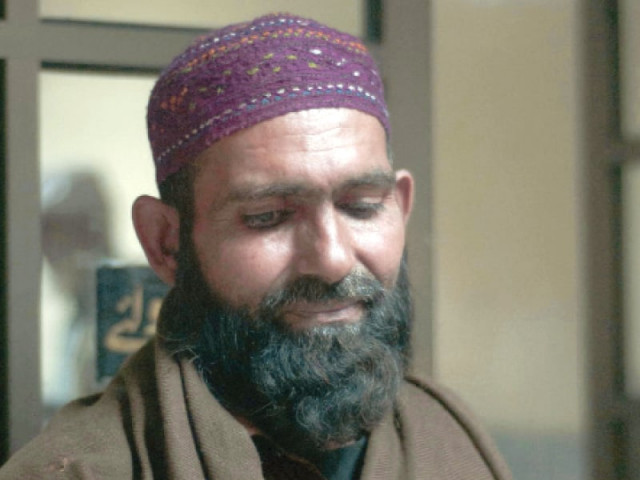Fighting for polio and his life without a penny in payment
Injured volunteer worker Sajjid is only 18 and had not been paid for five vaccination drives.

Shoes lined the doorway of Lady Reading Hospital’s (LRH) intensive care unit (ICU). A sombre group stood inside, supporting one man with their collective silence.
“No one expects such things will happen to them,” said Shah Jehan, Sajjid’s father who was standing in the waiting area outside the ICU where the teenager is fighting for his life after being shot on Monday during an immunisation campaign in Shabqadar. Even under current circumstances, he spoke with a smile but his worry rested in the lines on his face.
“His mother worried about his volunteering for health campaigns but no one can expect this.” Shah Jehan owns and drives a Suzuki pickup, and two of his other sons also work. They seek daily labour after school hours.

Unfortunately for Sajjid, the fruit of his labour—Rs700 per campaign—was never within reach. According to Katozai Medical Officer Dr Hidayatullah and EPI Technician Shafiullah, Sajjid had not been paid for one measles campaign, and four polio campaigns (two in November and one each in January and February). The teen had been part of more than 8 to ten campaigns, confirmed Shafiullah, indicating his need to earn.
Both men were stumped as the topic of payments took centre stage—a problem of old and yet unsolved. There were explanations which linked together the government and the United Arab Emirates as being responsible behind the abysmal breach of implicit contract. Polio campaigns in Peshawar have also been delayed of late because of similar stories of health workers who had not been paid by the donors through the government.
For health workers and volunteers, even if the paymaster changes, their problems of non-payment remain unchanged, as does the risk to their lives.
A vigil of love
The bullet that hit Sajjid, as he was out with a social worker to inoculate and protect children from the poliovirus, pierced through his back and exited from his face, said a Lady Reading Hospital spokesperson. Sajjid was out of surgery by Monday afternoon but was still in a highly critical state by dusk—hospital officials were unwilling to comment further on his state.
Asif Khan, the area in charge who was with him at the time of the attack, was pushed to the ground by one of two assailants on a motorcycle, but was lucky enough to avoid getting shot. Asif’s father, EPI technician Shafiullah, was also pacing in the waiting area. Fear of a future attack robbed the father’s relief at having his son among the living.
What about security
“The only security was naka bandi,” said Dr Hidayatullah. “As per plan, now there are no policemen escorting polio teams door to door,” something he was clearly unhappy about.
Cordoning off an area and manning entry and exit points only works in urban centres with non-porous lines, said the medical officer. “It’s not possible in rural areas where there are so many points of entry.”
Hesitating before he spoke, he added, “This would have not happened if they had proper security, with policemen walking with the teams.”
Published in The Express Tribune, November 26th, 2014.












COMMENTS
Comments are moderated and generally will be posted if they are on-topic and not abusive.
For more information, please see our Comments FAQ